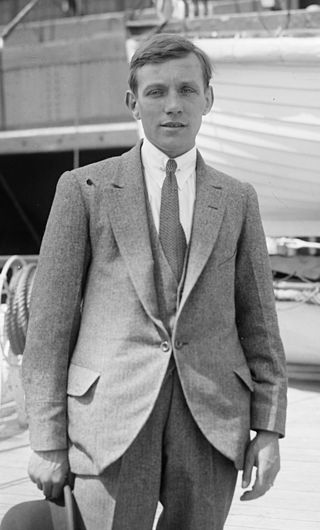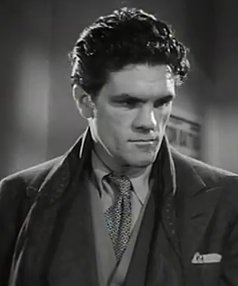Related Research Articles

William James Wilde was a Welsh professional boxer who competed from 1911 to 1923. He held the IBU world flyweight title in 1916, the EBU European flyweight title twice; firstly in 1914 and again from 1916 to 1917, the BBBofC British flyweight title in 1916 and the National Sporting Club's British flyweight title from 1916 to 1918.
Benjamin Lynch, known as Our Benny, was a Scottish professional boxer who fought in the flyweight division. He is considered by some to be one of the finest boxers below the lightweight division in his era and has been described as the greatest fighter Scotland ever produced. The Ring Magazine founder Nat Fleischer rated Lynch as the No. 5 flyweight of all-time while his publication placed him 63rd in its 2002 list of the "Best Fighters of the Last 80 Years". Like Fleischer, both Statistical boxing website BoxRec and the International Boxing Research Organization also rank Lynch as the 5th greatest flyweight ever. He was elected to the Ring Magazine hall of fame in 1986 and the International Boxing Hall of Fame in 1998.

Frederick Percival Mills was an English boxer, and the world light heavyweight champion from 1948 to 1950. Mills was 5 feet 10+1⁄2 inches (179 cm) tall and did not have a sophisticated boxing style; he relied on two-fisted aggression, relentless pressure, and the ability to take punishment to carry him through, and in more cases than not these attributes were sufficient.
John Henry Stracey MBE is a British former professional boxer who competed from 1969 to 1978. He is a former welterweight world champion, having held the WBC and lineal welterweight titles between 1975 and 1976. At regional level, he held the British and European welterweight titles between 1973 and 1975, and is ranked by BoxRec as the 8th best British welterweight of all time.
John Brown, better known as Jackie Brown, was a flyweight boxing world champion. He held the NBA, IBU and British flyweight titles. He would be stripped of both his NBA and IBU titles while still having not been beaten at flyweight since the beginning of his reigns. The NBA stripped him on July 6, 1934 when he was arrested and sentenced to four months in prison for assault. while he was stripped of his IBU title for not giving Valentin Angelmann another chance after a draw in a title bout against him. His British flyweight title would be the only title he lost in the ring when he was defeated on September 9, 1935 to Benny Lynch thus taking all claims he laid to being a flyweight champion.

Howard Winstone, MBE was a Welsh world champion boxer, born in Merthyr Tydfil, Wales. As an amateur, Winstone won the Amateur Boxing Association bantamweight title in 1958, and a Commonwealth Games Gold Medal at the 1958 British Empire and Commonwealth Games in Cardiff.
Terry Downes, BEM was a British middleweight boxer, occasional film actor, and businessman. He was nicknamed the "Paddington Express" for his aggressive fighting style.
Carmel Magri, who boxed under the name Charlie Magri, is a British former professional boxer. He is from a Tunisian family that settled in Mile End, London, where he grew up. During his professional career he held the WBC and lineal flyweight titles.
Walter McGowan, MBE, was a Scottish boxer born in Hamilton, South Lanarkshire. He was known for having been the world flyweight champion.

Errol Christie was an English professional boxer and boxing trainer. He was the captain of the English amateur boxing team from 1980 to 1983 and European amateur champion in 1983. After turning professional he was a regular fixture on ITV Fight Night in the 1980s. After retiring from boxing he became a trainer in white-collar boxing.
Paul Sykes was a British heavyweight boxer, weightlifter, writer, prisoner, and debt collector. A substantial portion of Sykes' adulthood was spent inside prison, where he became notorious as one of the most difficult prisoners in the country.

José Legrá is a retired professional featherweight boxer. He is a former two time WBC World Featherweight Champion.
Basil Sylvester Sterling, known as Bunny Sterling, was a Jamaican-born British boxer, who in 1970 became the first Caribbean immigrant to win a British title when he won the middleweight belt. He went on to become European middleweight champion in 1976.
Vernon Sollas is a Scottish former boxer, businessman and music manager, who was British featherweight champion between 1975 and 1977.
Colin Lake is a British former boxer and jockey who fought for the British super featherweight boxing title in 1969. He went on to become a boxing trainer.
Tommy Glencross was a Scottish boxer, who held the British featherweight title between 1972 and 1973, the Scottish lightweight title between 1976 and 1977, and who twice challenged for the European featherweight title.
Johnny A Clark was a British boxer who won the British and European bantamweight titles in 1973.
Ngozika Ekwelum is a Nigerian former heavyweight boxer, who held the Nigerian and African Boxing Union heavyweight titles in the 1970s and 1980s.

Pierre Charles was a Belgian boxer who was the heavyweight champion of Belgium and Europe. He held the Belgian title between 1926 and 1927, and again between 1935 and 1936, and the International Boxing Union (IBU) European title for three periods, from 1929 to 1931, 1932 to 1933, and 1935 to 1936.

Hein Müller was a German boxer, who was a champion of Europe as both an amateur and a professional. He won German amateur titles at three weights, was European amateur champion at light heavyweight, and as a professional won the German and European heavyweight titles.
References
- ↑ "Big Chance for Revie" . Coventry Evening Telegraph. 20 February 1968. Retrieved 23 December 2017– via British Newspaper Archive.
- ↑ "Revie, Cullen Seek Titles" . Birmingham Daily Post. 5 April 1968. Retrieved 23 December 2017– via British Newspaper Archive.
- ↑ "Youthful Revie Can Take Vacant Crown" . Coventry Evening Telegraph. 24 March 1969. Retrieved 23 December 2017– via British Newspaper Archive.
- ↑ "Revie New British Champion" . Birmingham Daily Post. 25 March 1969. Retrieved 23 December 2017– via British Newspaper Archive.
- ↑ "This Fight Would Cause an Uproar" . Coventry Evening Telegraph. 26 April 1969. Retrieved 23 December 2017– via British Newspaper Archive.
- ↑ "Let's Have Less of the Ballyhoo!" . Sports Argus. 16 August 1969. Retrieved 23 December 2017– via British Newspaper Archive.
- ↑ "Revie is Booed Out of Ring After Points Win" . Birmingham Daily Post. 15 October 1969. Retrieved 23 December 2017– via British Newspaper Archive.
- ↑ "Revie Can Take Title From Legra" . Aberdeen Evening Express. 23 January 1971. Retrieved 23 December 2017– via British Newspaper Archive.
- 1 2 3 Bunce, Steve (2017) Bunce's Big Fat Short History of British Boxing (Kindle edition), Transworld Digital, ASIN B01KUHG9R0
- ↑ Donald, Brian (2017) "Evan Armstrong", The Herald, 11 July 2017. Retrieved 23 December 2017 via pressreader.com
- ↑ "Just How Good Is Sollas?" . Sports Argus. 24 August 1974. Retrieved 23 December 2017– via British Newspaper Archive.
- ↑ "British Title Chance for Sollas" . Aberdeen Evening Express. 24 March 1975. Retrieved 23 December 2017– via British Newspaper Archive.
- ↑ Boxing News, 4 April 1975. Retrieved 23 December 2017
- ↑ "King Billy (1980)", British Film Institute. Retrieved 23 December 2017